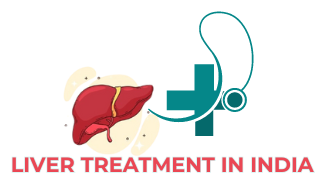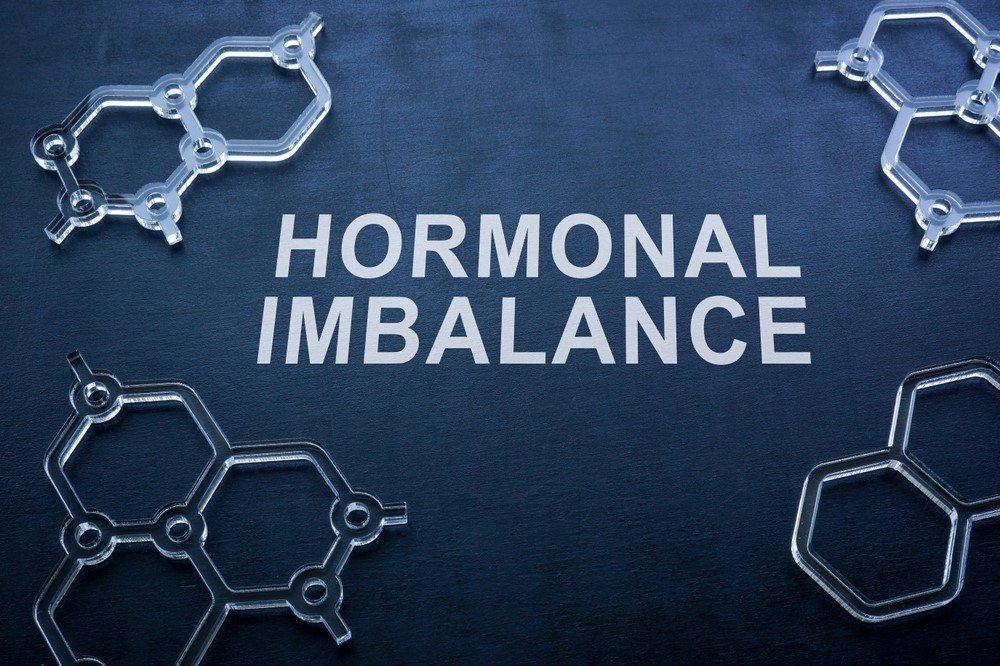Overview of the Impact of Hormonal Imbalance on Liver Health
Hormonal imbalance can have a significant impact on liver health. For example, conditions like polycystic ovary syndrome (PCOS) and thyroid disorders can lead to hormonal imbalances that affect the liver’s ability to function properly. These imbalances can cause issues such as fatty liver disease, liver inflammation, and even liver damage. It is important to address hormonal imbalances through appropriate medical treatment and lifestyle changes to prevent adverse effects of hormonal imbalance on liver health.
Hormones and Their Role in Liver Function
Hormones play a crucial role in liver function as they help regulate various processes in the liver. For example, insulin helps regulate glucose metabolism in the liver by promoting the storage of glucose as glycogen. On the other hand, glucagon helps stimulate the breakdown of glycogen into glucose when blood sugar levels are low. Additionally, hormones such as cortisol and adrenaline can affect liver function during times of stress by promoting the release of glucose into the bloodstream to provide energy for the body. Hormones also play a role in regulating lipid metabolism in the liver, which is important for maintaining healthy cholesterol levels. Overall, hormones play a vital role in coordinating the various metabolic processes in the liver and ensuring proper liver function.
What Are the Effects of Hormonal Imbalances on Liver Health
There can have various effects of hormonal imbalance on liver health. For example, an imbalance in estrogen levels can lead to an increased risk of developing conditions such as fatty liver disease or liver fibrosis. Similarly, imbalances in insulin or thyroid hormones can also impact liver function and contribute to the development of conditions like insulin resistance or non-alcoholic fatty liver disease.
Estrogen Imbalance
Hormonal imbalances, including estrogen imbalance, can have various effects on liver health. An excess of estrogen can lead to a condition known as estrogen dominance, which may contribute to liver problems such as liver disease, fatty liver, and liver cancer. Estrogen dominance can also affect the liver’s ability to metabolize hormones, toxins, and medications properly, potentially causing liver damage.
Insulin Resistance and Hyperinsulinemia
Insulin is a hormone produced by the pancreas that helps regulate glucose levels in the blood. When the body becomes resistant to insulin, it can lead to elevated blood sugar levels and an increased risk of developing type 2 diabetes. In the liver, insulin resistance can lead to an overproduction of glucose, as the liver continues to release glucose into the bloodstream even when levels are already high. This can contribute to further elevations in blood sugar levels and increase the risk of complications such as fatty liver disease and liver inflammation.
Hyperinsulinemia, or high levels of insulin in the blood, can also have negative effects on liver health. Excess insulin can promote the accumulation of fat in the liver, leading to non-alcoholic fatty liver disease (NAFLD). Over time, NAFLD can progress to more severe conditions such as non-alcoholic steatohepatitis (NASH), which is characterized by liver inflammation and damage.
Thyroid Dysfunction
The thyroid gland plays a crucial role in regulating metabolism, including the metabolism of fats in the liver. When thyroid hormones are imbalanced, it can lead to various liver issues such as fatty liver disease, liver fibrosis, and even liver cirrhosis. An underactive thyroid (hypothyroidism) can slow down liver function, leading to the accumulation of fat in the liver cells. This can result in non-alcoholic fatty liver disease (NAFLD), which is a common liver disorder. On the other hand, an overactive thyroid (hyperthyroidism) can increase the risk of liver damage and impair liver function. Proper treatment of thyroid dysfunction through medication, lifestyle changes, and regular monitoring can help maintain optimal liver health.
Androgen Excess
Androgen excess can lead to an increased risk of developing non-alcoholic fatty liver disease (NAFLD) due to its role in affecting lipid metabolism and insulin resistance. It can also contribute to liver inflammation and fibrosis, which can progress to more serious conditions such as liver cirrhosis or liver cancer. Monitoring hormone levels and hormonal imbalance management through lifestyle changes, medication, or other interventions can help reduce the impact on liver health.
Supporting Liver Health and Hormonal Imbalance Management
For supporting your liver health and hormonal imbalance management, it’s important to focus on lifestyle choices and dietary habits. Here are some tips that may help:
Lifestyle Modifications
- Stay hydrated: Drinking plenty of water helps flush out toxins from the body and supports liver function. Aim to drink at least 8 glasses of water a day.
- Exercise regularly: Physical activity help regulate hormone levels and improve liver health. Aim for at least 30 minutes of moderate exercise most days of the week.
- Get enough sleep: Lack of sleep can disrupt hormone balance and liver function. Aim for 7-9 hours of quality sleep each night to support overall health.
- Manage stress: Chronic stress can contribute to hormonal imbalances and liver issues. Practice stress-reducing techniques such as meditation, deep breathing, or yoga to help manage stress levels.
- Limit alcohol and caffeine intake: Both alcohol and caffeine have negative effects on hormone levels and liver health. Limit your intake of these substances to support optimal health.
Medications
In general, medications commonly used for hormonal imbalance management include:
- Hormone replacement therapy (HRT): This treatment involves taking hormones to balance estrogen and progesterone levels in women experiencing menopause.
- Oral contraceptives: Birth control pills help regulate hormone levels, particularly in women with conditions like polycystic ovary syndrome (PCOS).
- Anti-androgens: These medications helps lower levels of male hormones in women with conditions like hirsutism or PCOS.
- Thyroid medications: For individuals with thyroid disorders, such as hypothyroidism, thyroid hormone replacement may be prescribed.
It is necessary to follow your healthcare provider’s guidance when taking medications for hormonal imbalance or liver health, as they have specific dosages, side effects, and interactions with other medications.
Nutritional Supplements
Below, as per the advice of best liver treatment doctor associated with our “Liver Treatment in India” team, we’ve outlined the list of nutritional supplements you can add in your diet to support your liver to counteract negative effects of hormonal imbalance.
- Vitamin D: Vitamin D plays a crucial role in hormone regulation and can help balance hormones in the body.
- Omega-3 fatty acids: Omega-3s are important for hormone production and can help reduce inflammation in the body, which may contribute to hormonal imbalance.
- Magnesium: Magnesium is involved in over 300 biochemical reactions in the body, including hormone regulation. Supplementing with magnesium can support hormone balance.
- Zinc: Zinc is essential for the synthesis and metabolism of hormones in the body. It can help regulate hormone levels and support overall hormonal health.
- N-acetylcysteine (NAC): NAC is a powerful antioxidant that can support liver health by promoting detoxification and reducing oxidative stress.
- B vitamins: B vitamins, particularly B6, B12, and folic acid, play a crucial role in liver function and can help support the liver’s detoxification processes.
Herbal Remedies
- Turmeric: Turmeric contains the active compound curcumin, which has anti-inflammatory and antioxidant properties that can benefit liver health.
- Dandelion root: Dandelion root is a natural diuretic that can help support liver detoxification and overall liver function.
- Milk thistle: Milk thistle is a popular herb that supports liver function and can help protect the liver from damage.
- Adaptogenic herbs: Adaptogens like ashwagandha, rhodiola, and holy basil can help the body adapt to stress, which can impact hormone balance.
Regular Monitoring of Hormonal Levels and Liver Function Tests
This approach helps individuals understand their hormone levels and liver health status, allowing for proactive management and timely intervention if any imbalance or issues are detected. Regular monitoring can help identify potential problems early on and enable healthcare providers to recommend appropriate treatment or modifications in lifestyle for hormonal imbalance to support liver health.
Consulting Healthcare Providers for Individualized Treatment Plans
It’s great that you’re considering consulting healthcare providers for individualized treatment plans. When it comes to hormonal imbalance management, healthcare providers may recommend various treatment approaches depending on the underlying cause. These could include lifestyle modifications, dietary changes, hormone replacement therapy, or other medications for hormonal imbalance. Healthcare providers may suggest strategies such as maintaining a healthy weight, avoiding excessive alcohol consumption, eating a balanced diet rich in fruits and vegetables, and staying hydrated. Remember, each individual is unique, and what works for one person may not work for another. That’s why consulting healthcare providers like known liver treatment doctor for personalized treatment plans is helpful. They can assess your specific situation, run necessary tests, and develop a plan tailored to your needs.
There have a significant effects of hormonal imbalance on liver health, as the liver plays a crucial role in metabolizing hormones. When hormones are out of balance, it can lead to an increased risk of developing conditions such as fatty liver disease, cirrhosis, and even liver cancer. Estrogen dominance, for example, has been linked to non-alcoholic fatty liver disease (NAFLD) in both men and women. This condition occurs when the liver accumulates excess fat due to hormonal imbalances, leading to inflammation and potential scarring of the organ over time. So, with advancements in medical science, seeking the right treatment is key to restoring balance and ensuring optimal liver function. If you or a loved one are facing liver health concerns, remember that seeking expert guidance and care is essential. Explore “Liver Treatment In India” to connect with top liver expert doctor and cutting-edge medical facilities. Your liver’s health is worth prioritizing, and finding the right support is the first step towards a healthier future.

